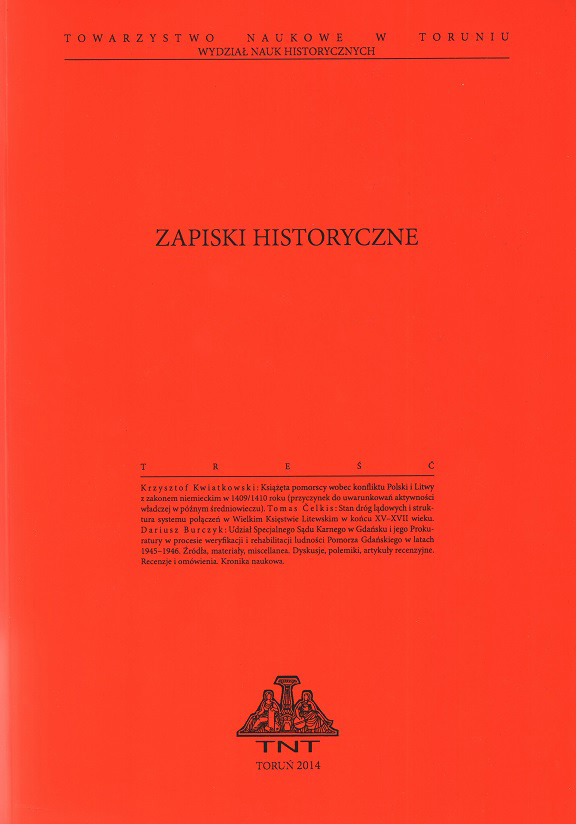Zur Geschichte der Führungsschichten in Königsberg und Marienburg in der Zeit des dreizehnjährigen Krieges
About the History of the Ruling Classes in Königsberg and Marienburg during the Thirteen Years’ War
The Contribution to the Exchange of the City’s Governing Elites
Author(s): Wiesław DługokęckiSubject(s): Cultural history, Political history, Social history, 15th Century
Published by: Towarzystwo Naukowe w Toruniu
Keywords: towns;the Teutonic State;the Old City of Königsberg;Königsberg-Kneiphof;the 15th century;social changes;the Prussian towns;
Summary/Abstract: The differences in the political attitude towards the Teutonic Order of the Old City of Königsberg and Königsberg-Kneiphof [Knypawa] on the one hand, and the city of Marienburg [Malbork] on the other hand, both prior to the outbreak of the Thirteen Years’ War and during it, caused significant disturbances in the composition of the authorities of the above-mentioned cities. The fact of both cities of Königsberg being taken over by the Teutonic Order caused that the town councilors supporting the incorporation of Prussia to Poland were forced to leave the cities. Eventually, they settled down in Gdañsk, Elblag and Malbork [Marienburg]. The advocates of the Teutonic Order from Malbork found shelter in Königsberg. For both groups the emigration meant the loss of property and estates, which were later granted in return for loyalty by King Casimir Jagiellon and Grand Master Konrad von Erlichshausen to their advocates who had been forced to emigrate. The representatives of both groups tried to regain their property in their family towns, but their attempts turned out to bear no fruit. Some of them were appointed town councilors or even mayors in their new places of residence, but such careers were not very common.
Journal: Zapiski Historyczne
- Issue Year: 82/2017
- Issue No: 1
- Page Range: 55-70
- Page Count: 16
- Language: German

